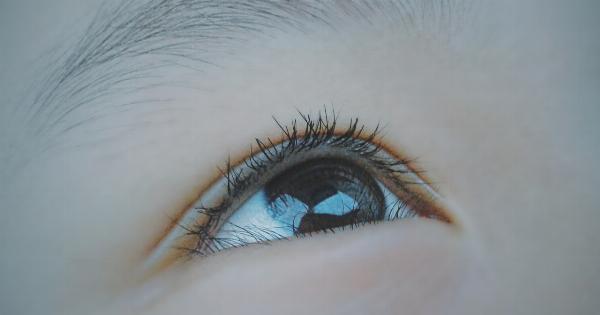Have you ever wondered if your eye color says anything about your personality or well-being? While it may seem like a stretch, some studies suggest that certain eye colors are associated with specific traits and health indicators.
In this article, we will explore what your eye color might reveal about you and whether there is any scientific basis for these claims.
The Science Behind Eye Color
Before we delve into the potential connections between eye color and personality or well-being, let’s first understand how eye color is determined.
The color of your eyes primarily depends on the amount and distribution of melanin, a pigment present in the iris of your eye. Higher melanin levels result in darker eye colors such as brown, while lower levels lead to lighter colors like blue or green.
While genetics play a significant role in determining eye color, it is a complex trait influenced by multiple genes. Additionally, environmental factors and the reflection and scattering of light can also impact the perceived color of your eyes.
Eye Color and Personality Traits
Many cultural and folkloric beliefs associate eye color with personality traits. While these connections lack scientific evidence, they remain an intriguing subject of discussion.
Brown Eyes
Brown eyes are the most common eye color, particularly among individuals with darker skin tones. Those with brown eyes are often perceived as trustworthy, reliable, and hardworking. They are known for their strong work ethic, loyalty, and practicality.
Brown-eyed people may also possess leadership qualities and tend to be confident and independent.
Blue Eyes
Blue eyes are captivating and relatively less common than brown eyes. Individuals with blue eyes are often seen as gentle, kind, and empathetic. They have a calm and peaceful demeanor and are known for their intuitiveness and creativity.
Blue-eyed people often possess a strong sense of self-expression and are renowned for their deep emotional connections.
Green Eyes
People with green eyes are considered to be enigmatic and mysterious. They are often associated with vitality, growth, and natural curiosity. Green-eyed individuals are typically quick-witted and intelligent.
They are known for their fierce sense of independence, adaptability, and assertiveness.
Gray Eyes
Gray eyes are relatively rare and possess a unique charm. Many individuals with gray eyes are perceived as balanced, logical, and composed. They often display a rational and analytical approach in their activities.
People with gray eyes are often strong-minded and have a natural ability to navigate complex situations adeptly.
Hazel Eyes
Hazel eyes are a fusion of different colors, often combining brown, green, and golden hues. Individuals with hazel eyes are known for their unpredictability and spontaneous nature. They are often highly energetic, creative, and adventurous.
Hazel-eyed people are skilled at adapting to changing circumstances and thrive on new experiences.
Debunking the Myths
It is essential to note that while eye color can be intriguing, there is no scientific evidence supporting a direct correlation between eye color and personality traits.
Studies examining this association have yielded mixed results, and the cultural and societal interpretation of eye color tends to overshadow any scientific basis.
Personality traits are a complex interplay of genetics, upbringing, environmental factors, and personal experiences. It is not accurate to generalize an individual’s personality solely based on their eye color.
Eye Color and Health Indicators
Besides personality traits, some studies have also explored potential links between eye color and certain health indicators.
While these investigations are still in their early stages, they may offer insights into the relationship between eye color and overall well-being.
Macular Degeneration
Macular degeneration is an eye condition that causes progressive vision loss.
Several studies suggest that individuals with lighter eye colors, such as blue or green, may have a higher risk of developing age-related macular degeneration (AMD) compared to those with darker eyes. However, further research is necessary to establish a concrete correlation.
Skin Cancer
Lighter eye colors are often associated with fair skin, which is more susceptible to harmful UV radiation.
Individuals with blue or green eyes are more prone to developing skin cancer, including melanoma, due to their lower levels of protective melanin in the skin and eyes. It is crucial for individuals with lighter eye colors to take appropriate sun protection measures.
Pain Tolerance
Intriguingly, some studies suggest that people with darker eye colors may have a higher pain tolerance compared to those with lighter eyes.
While the exact mechanism behind this correlation is not clear, it highlights a potential connection between eye color and pain perception.
Conclusion
While eye color may not be a definitive indicator of personality or well-being, it remains a topic of fascination and intrigue.
The complex interplay of genetics, environmental factors, and personal experiences makes it challenging to establish a direct correlation between eye color and these aspects of an individual’s life.
Regardless of your eye color, it is essential to remember that each person is unique and cannot be entirely defined by a single trait. Instead, focus on embracing individuality and celebrating the diverse qualities that make you who you are.




























